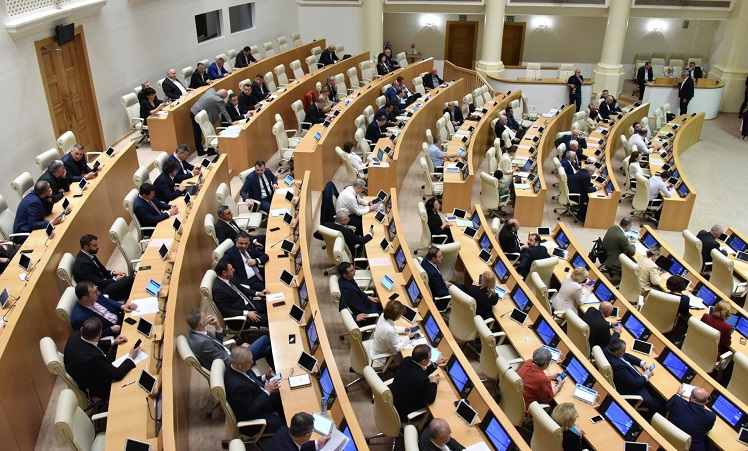US Embassy recommends Georgian Parliament to allow lifetime appointment of Supreme Court judges

The US Embassy in Georgia on Wednesday unveiled its recommendations to the Georgian Parliament on judicial reform. Photo: US Embassy press office
The United States Embassy to Georgia on Wednesday made a recommendation to the Georgian Parliament to allow lifetime appointments for the country’s Supreme Court judges to retain “qualified and experienced” personnel, as part of its general recommendations on the judicial reform to the state legislature.
In its remarks, the Embassy also recommended the Parliament to change the current procedures for electing judge members to the High Council of Judges, an independent body which selects and appoints judges across the country.
All candidates should be required to register in advance and to present qualifications so that members can review the qualifications before the vote”, said the Embassy, urging the legislative body to reverse the December 2021 amendments and reintroduce a prohibition on re-election of Council members for a consecutive term, noting “this would increase the independence of the HCOJ”.
 The Georgian Parliament is authorities to approve the Supreme Court judges. Photo: Parliament of Georgia press office.
The Georgian Parliament is authorities to approve the Supreme Court judges. Photo: Parliament of Georgia press office.
The Embassy also called for amendments to law “to reduce the control” the HCOJ had over appointment of members to the High School of Justice, an educational institution which ensures professional trainings for candidate judges, judges, assistants to judges and other court staff.
In order to avoid concentration of power “amongst a small group of judges” and to “reduce influence of judges holding several administrative and leadership positions in the judiciary”, the Embassy stressed that the law should be amended “to prohibit court chairpersons, deputy chairs of court, and chairpersons of court chambers from serving on the HCOJ”.
In a bid to draft a “comprehensive judicial reform” that included adopting recommendations by the Council of Europe’s Venice Commission for Supreme Court nominations and election by Parliament, the Embassy recommended the Parliament to work across the political parties, civil society, judges, and legal experts through an “inclusive process”.
Reforming the judiciary is one of 12 conditions set by the European Commission in June for Georgia to receive the European Union membership candidate status next year.
 Tweet
Tweet  Share
Share